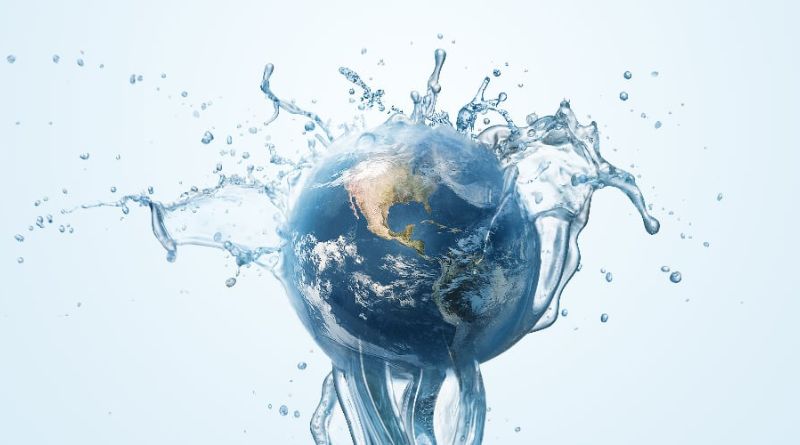Water is one of the most essential elements on Earth, crucial for all forms of life. From quenching thirst to sustaining agriculture, industry, and ecosystems, water is an irreplaceable resource. However, despite its importance, many regions around the world are facing severe water scarcity and contamination issues. To raise awareness and foster a deeper understanding of these challenges, water documentaries have become powerful tools in educating the public about the importance of water conservation, the effects of climate change, and the global water crisis.
In this article, we will explore the significance of water documentaries, how they contribute to global awareness, and provide a list of notable documentaries that focus on the issues surrounding water.
Table of Contents
The Importance of Water Documentaries
Water documentaries play a vital role in raising public awareness about the critical importance of water and its finite nature. These films offer insight into the environmental, social, and political issues that affect water resources, as well as the challenges communities face in accessing clean, safe water. They also highlight the intersection of water with climate change, human health, agriculture, and biodiversity.
Here are a few key ways in which water documentaries contribute to global understanding:
- Raising Awareness about Water Scarcity
Many parts of the world, particularly in arid regions or developing countries, face water scarcity. Documentaries shed light on how population growth, climate change, and overconsumption are exacerbating water shortages. By highlighting the struggles of communities that lack access to clean water, documentaries can spark a sense of urgency and responsibility. - Environmental Education
Water is vital to every ecosystem, and understanding its role in sustaining life is crucial. Water documentaries often focus on how human actions, such as pollution and deforestation, affect water quality and aquatic ecosystems. These films help viewers appreciate the interconnectedness of water with natural habitats and the need to protect this resource for the health of the planet. - Promoting Water Conservation
With the global water crisis escalating, many documentaries highlight the importance of water conservation efforts. They provide practical tips on how individuals and industries can reduce their water consumption, as well as encourage policymakers to implement sustainable water management practices. - Exploring Water Justice and Inequities
Many documentaries focus on the disparities in water access, illustrating how poverty and inequality affect a community’s ability to access clean, safe water. These films often give voice to marginalized communities, showing how the lack of water access contributes to broader issues like health crises, social unrest, and economic instability.
Notable Water Documentaries
Several documentaries have gained attention for their insightful exploration of water-related issues. Here are some of the most impactful films that delve into the complexities of water:
1. “Flow: For Love of Water” (2008)
This documentary examines the growing global water crisis and the increasing privatization of water resources. It discusses the consequences of treating water as a commodity rather than a public right, and it features stories of people around the world who are fighting for access to clean water. The film brings attention to the political, economic, and environmental implications of water scarcity.
2. “Blue Gold: World Water Wars” (2008)
“Blue Gold: World Water Wars” investigates the impact of water scarcity on global geopolitics, focusing on the potential for water conflicts in the future. The film explains how the privatization of water, combined with pollution and climate change, is putting the most basic human needs at risk. It also explores the growing movement to protect water as a public resource, emphasizing the importance of preserving this vital commodity for future generations.
3. “The Last Drop” (2014)
This documentary highlights the crisis facing the world’s water supply. From droughts to overconsumption, it explores the causes of water scarcity and the challenges communities face in trying to find sustainable solutions. “The Last Drop” stresses the importance of water conservation and sustainable management practices, urging both individuals and governments to take action to safeguard water resources.
4. “A Plastic Ocean” (2016)
While not solely focused on water scarcity, “A Plastic Ocean” investigates the pollution of our oceans with plastic waste and the devastating impact it has on marine life and the global water system. The film highlights the dangers of plastic pollution in our oceans and the urgent need to reduce plastic consumption to protect aquatic ecosystems and ensure clean, safe water for future generations.
5. “The Water Crisis: The Global Struggle for Water” (2016)
This documentary focuses on the global struggle for water resources, looking at how different countries and communities are coping with water shortages. From the rural areas of Africa to urban centers facing drought, the film presents the challenges of water scarcity, the economic implications of water shortages, and how communities are adapting to survive. The documentary calls for a global response to the crisis, including better water management and policy reforms.
6. “Chasing Ice” (2012)
“Chasing Ice” follows photographer James Balog as he captures images of glaciers melting due to climate change. While not exclusively about water, the film shows how rising temperatures are directly affecting water supplies through the melting of glaciers, which are vital sources of freshwater for millions of people. The documentary offers a powerful visual message about the urgency of addressing climate change and protecting water resources.
The Role of Documentaries in Shaping Policy and Action
Water documentaries do more than just inform; they inspire action. By raising awareness about water scarcity and environmental destruction, these films often lead to tangible changes in how people and governments approach water issues. Many documentaries encourage grassroots movements, influence public policy, and promote corporate accountability.
In particular, they urge individuals to reduce water consumption, advocate for the protection of water resources, and support policies that ensure clean water is accessible to all. These films help people understand that water is a finite resource, and its preservation is essential for the well-being of humanity and the planet.
FAQs About Water Documentaries
1. Why are water documentaries important?
- Water documentaries play a crucial role in educating the public about the global water crisis, water scarcity, pollution, and climate change. They raise awareness about the importance of protecting this vital resource and inspire individuals and communities to take action to conserve water and protect the environment.
2. What can I do after watching a water documentary?
- After watching a water documentary, you can take several steps to help address water issues, such as reducing your own water consumption, supporting policies that protect water resources, advocating for clean water access, and participating in local environmental initiatives.
3. How do water documentaries raise awareness?
- Water documentaries raise awareness by telling real-life stories of people who are affected by water scarcity, pollution, and water access issues. They use compelling visuals, expert interviews, and data to highlight the severity of the global water crisis and motivate people to get involved in finding solutions.
4. Can water documentaries influence public policy?
- Yes, documentaries can influence public policy by bringing attention to critical issues and encouraging policymakers to take action. Many documentaries have spurred grassroots movements, led to policy reforms, and inspired international cooperation to address water-related challenges.
5. What is the impact of water documentaries on environmental activism?
- Water documentaries play a significant role in environmental activism by providing compelling evidence of the need for better water management, conservation efforts, and the protection of aquatic ecosystems. They inspire individuals and organizations to advocate for sustainable practices and policies that benefit both people and the planet.
Conclusion
Water documentaries serve as a powerful tool for raising awareness about the global water crisis, the challenges of water scarcity, and the need for environmental stewardship. Through their emotional storytelling and factual content, these films shed light on the importance of preserving water for future generations. By watching and supporting these documentaries, we can better understand the urgent need for action to ensure clean, accessible water for all.






